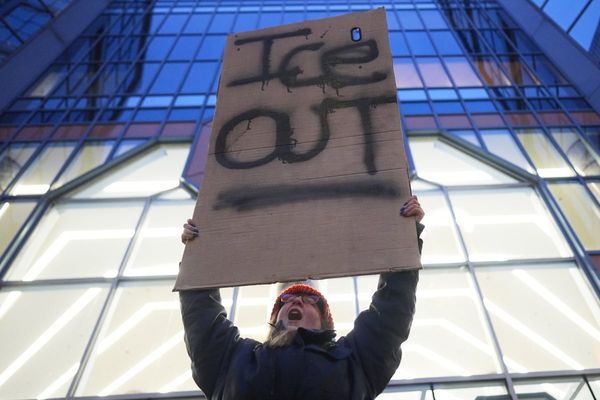Russian military aircraft have strayed into EU airspace this past week, testing reactions in nations that used to be Soviet affiliates. But further south, an even graver and more immediate Russian intervention has just been identified and blocked.
The Republic of Moldova, a small Eastern European nation nestled between Romania and Ukraine, has long found itself at the crossroads of competing geopolitical interests. The country’s parliamentary elections have, over the past decade, drawn not only domestic attention but also that of the Russian Federation. Russia’s influence campaign in Moldova’s parliamentary elections is part of a broader strategy employed throughout the region to shape political outcomes, destabilise pro-European movements and maintain a sphere of influence in the post-Soviet space.
We should make no mistake: if the Kremlin had succeeded in tiny Moldova, its next target would have been EU member Romania next door, where Russian meddling led to a court-ordered annulment of the 2024 presidential election and where a “RomExit” from the EU remains a hot topic.
Moldova’s historical and cultural ties to both Romania and Russia make it a unique battleground for influence. Following its independence from the Soviet Union in 1991, Moldova has struggled to define its foreign policy orientation, oscillating between pro-European integration and maintaining close relations with Moscow. The country’s political landscape is deeply fragmented, with parties advocating divergent paths – some seeking closer ties with the European Union, others favouring alignment with Russia.
For Russia, Moldova represents more than just a neighbouring state; it is a linchpin in its effort to regain influence over the former Soviet bloc. The Kremlin’s interests are multifaceted: preserving its cultural and linguistic ties, protecting the Russian-speaking population, and maintaining leverage over the strategically significant region of Transnistria, a breakaway territory within Moldova that functions as a de facto Russian outpost.
Russia’s campaign to sway Moldova’s parliamentary elections was characterised by a blend of overt and covert tactics, drawing on the full spectrum of modern influence operations.
The parliamentary elections in Moldova over the past decade have repeatedly illustrated Russia’s enduring influence. In the 2019 elections, for example, Russian media outlets flooded Moldovan airwaves with stories highlighting alleged corruption among pro-European politicians, while boosting the credentials of the Socialist Party, widely regarded as Moscow’s preferred partner. Social media bots and troll farms amplified these narratives, creating an echo chamber that reached even rural communities with limited access to independent news.
Similarly, in the lead-up to the 2021 parliamentary elections, cyber attacks targeted the Central Electoral Commission, temporarily disrupting voter registration systems and raising fears of manipulation. Investigations by Moldova’s security services later attributed these attacks to actors with links to Russian intelligence. Meanwhile, pro-Russian parties received suspiciously large donations, some traced back to offshore accounts with connections to Russian entities, highlighting the financial underpinnings of the influence campaign.
The ruling Party of Action and Solidarity (PAS) is solidly pro-EU. But it faced opposition from a coalition of right-wing parties called the Patriotic Electoral Bloc (BEP). The BBC reported last week that the BEP was being backed by a secretive pro-Russia organisation financed by sanctioned Moldovan oligarch Ilan Shor.
The cumulative effect of Russia’s influence operations has been to undermine the credibility of Moldova’s democratic institutions. Public trust in the electoral process has eroded, with many citizens sceptical of the fairness and transparency of elections. This scepticism is further fuelled by persistent rumours of vote-buying, voter intimidation, and the manipulation of electoral rolls. The polarisation of Moldovan society along geopolitical lines – East versus West – has deepened, making consensus and effective governance increasingly elusive.
Moreover, the presence of Russian troops and arms in Transnistria serves as a continual reminder of Moldova’s vulnerability to external pressure. The region’s unresolved status provides Moscow with a lever to intervene whenever Moldovan politics threaten to move out of its orbit.
Maia Sandu, Moldova’s president and a prominent pro-European leader, articulated the gravity of the challenge in a 2022 address: “We are facing unprecedented attempts to undermine our society and democracy from external actors. The resilience of our people and our institutions is being tested, but we remain committed to a democratic and European future for Moldova.”
Russia’s influence campaign on Moldova’s parliamentary elections is a microcosm of broader trends in Eastern Europe, where external actors seek to shape domestic politics through a combination of soft power, hybrid warfare, and subtle coercion. For Moldova, safeguarding its democracy requires not only technical fixes but also a recommitment to transparency, accountability, and civic engagement. International partners can help, but ultimately, the resilience of Moldova’s institutions will determine whether the country can resist foreign interference and chart its own course.
PAS’s win on Sunday demonstrates that the electorate understood what was at stake and made a decisive choice. But we need to hope Romania will take lessons from this and learn from its little neighbour that vigilance, reform, and unity are essential in the face of persistent external pressure. The fate of European democracy hangs in the balance, shaped not just by its own citizens but by the invisible hand of Vladimir Putin, trying to revive the USSR.
Sir Nick Harvey, a former defence minister, is CEO of the European Movement, founded by Winston Churchill to promote European unity
‘Apocalypse No.’ Why the world is moving away from global catastrophe
Like Lewis Hamilton, I’m putting my dog on a vegan diet – what could go wrong?
Meet the energy tycoon accused of fraud who is buying up the North Sea
Dyson is in trouble – but not for the reason you might think...
In the battle of Reform vs Labour, the Tories have one option – to back business
After the horrific attacks in Manchester we must defend the right to protest







